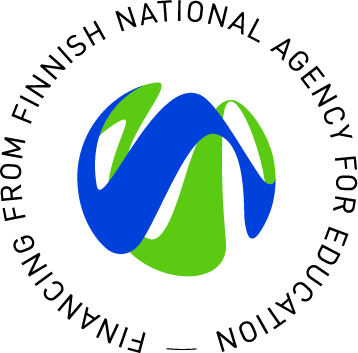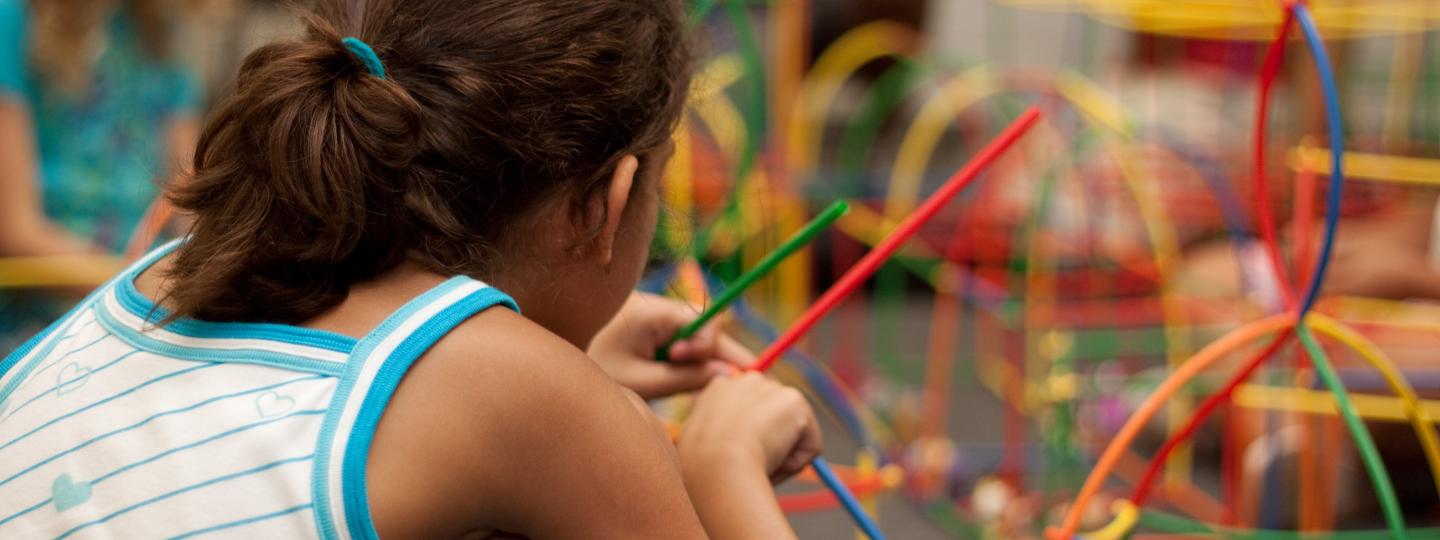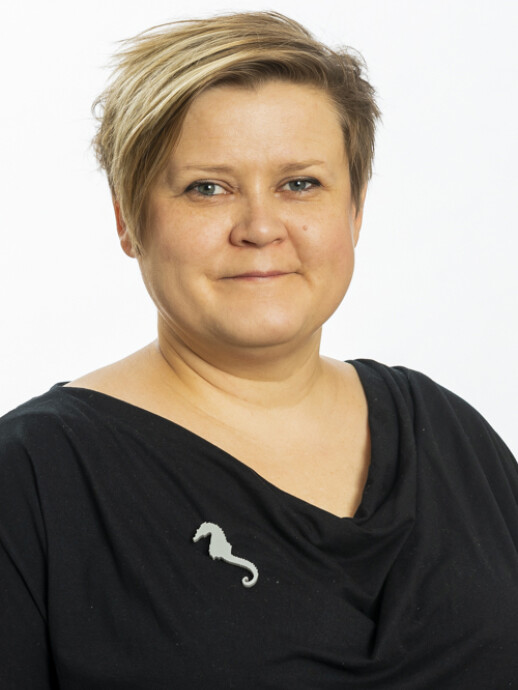Constructing a sustainable future requires us, as individual and societies, to have a holistic relation to the future. Development of futures thinking and futures learning increase the capacity of an individual to face a different futures and affect the shaping of the future.
A critical examination of individual values, assumptions and conceptions of the future as well as a community mindset and social responsibility are central to futures conscious culture and learning.
In our research, education, and development projects at FFRC we focus on futures consciousness, futures literacy, as well as futures learning and guidance. We also produce reports, facilitate futures oriented processes related to the future skills, competences and development needs within education and work life. As methods we use e.g. images of the future, scenarios, workshops, questionnaires and interviews, as well as futures guidance tools. Participatory methods and processes are central to our development work.
Ongoing Research and Development Projects:
Advanced Climate Change Education for Sustainable Futures and Systems Change (ACCESS) is an Erasmus+ Capacity Building in Higher Education project. The project is a collaborative effort implemented by a consortium between two Nepalese universities and two universities from the European Union.
Goals of the project are to
- Enhance administrative capacities of Nepal HEIs in international project management and financing, quality assurance, planning,monitoring and evaluation.
- Ensure high quality and relevant climate change and sustainability education through enhanced staff capacities and design and implementation of blended and digital courses in Nepal HEIs.
- Increase the accessibility of the students/staff with fewer opportunities through open access to digital climate change university for everyone in Nepal.
The project is coordinated by the Sustainable Development Futures research group at Finland Futures Research Centre. The consortium consists of Kathmandu University, Purwanchal University, Wageningen University and University of Turku.
Further information: Mika Korkeakoski & Osku Haapasaari
https://sites.utu.fi/erasmus-access/

The AINO Project aims to improve guidance and support measures for students in minority positions within universities of applied sciences and vocational institutions. Awareness of these students and their needs is still limited in the field of education, and educational institutions often lack systematic methods to support them effectively.
Prejudices and discrimination related to factors such as functional capacity, disability, immigrant background, gender, sexual orientation, and linguistic or cultural background can significantly affect students’ possibilities to successfully proceed with their studies. These challenges also impact their access to essential internships and work-based learning opportunities, which are crucial for graduation and employment.
The project is coordinated by Oulu University of Applied Sciences, with Brahe Vocational Institute and the Finland Futures Research Centre at the University of Turku as partners.
Duration: 1 May 2025 - 31 December 2027
Funding: The project is funded by the European Social Fund Plus (ESF+), with support from the Centre for Economic Development, Transport and the Environment of Northern Ostrobothnia.
Further information: Sari Miettinen
https://oamk.fi/en/projects/aino/

The CHILL project researches and develops solutions that enable Finnish organizations to tap into hybrid work as a competitive advantage. The study looks at how a hybrid work culture can be built to support communality, learning and innovation. In addition, the project examines what kinds of changes hybrid work requires from management and HR practices and what kinds of impacts it has on well-being at work.
The project will result in new hybrid work models, management practices and workspace solutions that strengthen communality, well-being and work performance and can be widely used in Finnish workplaces.
The project will be carried out as a learning network of more than 30 organizations, and the results can be applied to practically any organization that uses hybrid work.
The project is funded by Business Finland and conducted in co-operation between the Finnish Institute of Occupational Health and Turku School of Economics under the University of Turku during 15.5.2025–31.3.2028.
Further information: Riku Santala, FFRC
Futurists talk about future consciousness, but what is it, actually? How does a future conscious person or organization look like, what kinds of features or traits do they have?
> Read more about the project.
Further information: Sanna Ahvenharju & Matti Minkkinen
The project focuses on the work life skills and connections of upper secondary and vocational education teachers and career counsellors in Northern Finland and Kainuu. Need for information of the current and future working life possibilities and networks already during secondary level studies are central in connecting with the world after graduation ase well as making meaningful educational and career choices. Project actions - new tools and methods will be developed and tested by teachers with their students - teacher training module with emphasis on learning-by-doing Project results - new ways of networking and improving work life connections of upper secondary schools and vocational schools - new tools and models for teachers and their students to explore the world of work and its possibilities both locally and regionally.
Timetable: 1st June 2023 - 31st May 2025
Partners: The project coordinator is Oulu University of Applied Sciences. Partners of the project are Kajaani University of Applied Sciences, University of Lapland and Finland Futures Research Centre (FFRC) within the Turku School of Economics at the University of Turku.
Funding
Centre for Economic Development, Transport and the Environment, North Ostrobothnia, Finland.
Further information: Sari Miettinen & Johanna Ollila, FFRC

The Futures Literacy for Business Renewal [FULIBRE] research group focuses on the application of the concept future literacy in business renewal and development.
Futures Literacy helps actors challenge unquestioned assumptions, widen perception of change, and identify new opportunities. The main goal is to understand how companies in Meyer Turku value network grow their capabilities to support business renewal in response to economic disruptions and climate change.
The research group and companies will co-design and test practical, methods for developing future literacy and applying this capability to act more innovatively and open-mindedly in changing business areas.
The research group members are Professor, D.Sc, Markku Wilenius, (PI) D.Sc. Leena Jokinen, Doctoral Researcher Nicolas Balcom Raleigh and Doctoral Researcher Martyn Richards. The research scope is 18 months during 1.1.2024-31.7.2025.
Further information: Leena Jokinen
Higher Education Development and Co-creation for Sustainable Futures in Vietnam (HI-Sustain) is a Team Knowledge Finland funded project, led by the Sustainable Development Futures research group from the University of Turku.
The aim of the project is to enhance the capacities of the Vietnamese partner universities to provide high-quality, versatile and futures oriented learning opportunities that take into account the local context in the era of climate change.
During the project a Massive Open Online Course (MOOC) in futures studies is tailored and piloted in the Vietnamese context. Through student and staff mobilities as well as the development of online and blended approaches, the adoption of co-creative pedagogies in sustainability topics is enhanced.
The project brings together four universities, two from Finland and two from Vietnam. In addition to University of Turku from Finland the project is joined by Aalto University, and in Vietnam by Van Lang University (VLU) and Ho Chi Minh City University of Technology (HCMUT).
The project started in August 2025 and will end in December 2027.
Funding: Team Finland Knowledge programme
For further information: Joni Karjalainen and Outi Vehka-aho

Low-Carbon Economy Transformation through Sustainable Energy Modernization and Access in Lesotho (LETSEMA) strengthens the sustainable energy ecosystem in Lesotho, combining perspectives from higher education and vocational education in a cross-sectoral fashion.
Project activities focus on (1) developing institutional capacities in management, administration, monitoring and evaluation, (2) improving equitable access to digital and high quality learning opportunities and (3) enhancing the capacities to provide high quality experiential and hands-on learning opportunities in the field of sustainable energy.
Project is a Erasmus+ Capacity Building in Higher Education project. It is a collaborative effort implemented by a consortium between National University of Lesotho, Bethel Business and Community Development Centre, Finland Futures Research Centre and Linnaeus University.
Project is carried out during 1.7.2023-30.6.2026.
Further information: Osku Haapasaari & Mika Korkeakoski, FFRC

Professional Noticing to Improve Entrepreneurship Education (PROMISE) project seeks to tackle the task of instilling a comprehensive entrepreneurial mindset in college students. This move towards imparting essential soft skills is essential due to the uncertain job market and societal changes. Professional Noticing could play a role in nurturing entrepreneurship skills and helping students apply what they learn in practical situations.
Our project aims to contribute to the evolution of higher education in the 21st century by identifying new practices that enable effective teaching of entrepreneurial competences. The project develops pedagogy that enables university teachers to support students' preparation for various professional situations in working life, and it has a specific focus on entrepreneurship education. PROMISE promotes the working life orientation of education and supports the growth of students into experts.
University of Turku coordinates the three-year project that was launched in December 2022, involving:
- Universidad Complutense Madrid, Spain,
- Universität für Weiterbildung Krems, Austria,
- European University Continuing Education Network, Spain,
- European E-Learning Institute, Denmark, and
- Momentum, Ireland.
The project is part of KA220-HED - Cooperation partnerships in higher education funded by the Erasmus+ programme of the European Union.
Contact person: Ira Ahokas
Project website: https://professionalnoticing.eu/
Sustainability and Climate Change Education in Sri Lanka for Systems Change and Futures Literacy (SUCCESSFUL) supports Sri Lankan universities in building climate resilience and meeting the challenges posed by the increased pace of social, technological and political change.
The project partnership fosters the development of quality climate education, facilitating Sri Lanka’s responses to climate and sustainability challenges of the future.
Project is a Erasmus+ Capacity Building in Higher Education project. It is a collaborative effort implemented by a consortium between two Sri Lankan universities and two universities from the European Union. Project is carried out during 1.1.2023-31.12.2025.
Further information: Mika Korkeakoski & Osku Haapasaari, FFRC
https://erasmus-successful.fi/

UNESCO Chair in Learning Society and Futures of Education project is part of the global Futures Literacy network coordinated by UNESCO. The project develops futures education contents and methods for informal and formal education that can be utilized worldwide.
Unesco Chair: Learning Society & Futures of Education
Further information: Markku Wilenius & Laura Pouru


